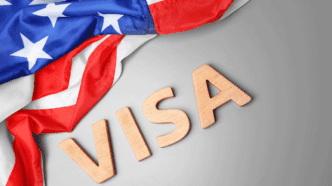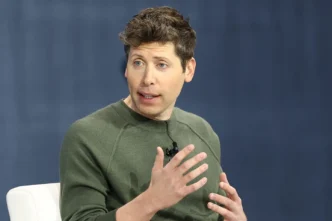A doctoral student researching AI in California has had their SEVIS record—proof of valid student visa status. Suddenly terminated, leaving their immigration status in jeopardy. The student, who spoke anonymously learned of the issue through their college’s international student center. Which said a criminal records check had flagged their name.
The student, who has studied in the U.S. for nearly a decade, denies any criminal history. “The most likely cause may be an interaction with the police many years ago, even before I entered graduate school,” they said. “I was conducting research in the AI field and had planned to continue my research after graduation.”
The student’s case is part of a broader issue. Over recent months, more than 1,000 international students across the U.S. have had their visa statuses revoked or challenged by the State Department and Immigration and Customs Enforcement (ICE). The crackdown—initiated during the Trump administration—has continued, with little notice given to universities. As a result, many students are left with few options and no clear guidance.
Visa Cancellations Disrupt Critical AI Research Projects
Yisong Yue, a machine learning professor at Caltech, said the current immigration policies are weakening the U.S. research ecosystem. “The cumulative effect is making the U.S. a significantly less appealing destination for many talented researchers,” he said. “Because research is highly specialized, when a doctoral student is pulled from a project, it can set back the project by months or years.”
The impact spans prestigious Ivy League schools, large public institutions, and small liberal arts colleges. Some students have been accused of supporting militant groups or engaging in antisemitic behavior. Others were penalized for minor infractions like traffic violations. In certain cases, visa revocations appear to be due to administrative errors.
One example is Suguru Onda, a computer science Ph.D. candidate at Brigham Young University. His visa was reinstated without explanation after his lawyer filed a legal challenge. The attorney, Adam Crayk, said the government is likely using AI-based systems to review visa holders without proper human oversight, causing avoidable mistakes.
In Georgia, a judge recently issued a temporary restraining order to reinstate the legal status of around 100 affected international students. The ruling may face future legal challenges and applies to only a small portion of the impacted population.
Yue emphasized that international students are instrumental in driving innovation in AI. Ashish Vaswani, co-creator of the transformer model that powers ChatGPT, studied in the U.S. on a student visa. So did Wojciech Zaremba, a co-founder of OpenAI, who earned his doctorate in AI from NYU.
A report by NAFSA, a nonprofit educational association, found that international students contributed $43.8 billion to the U.S. economy during the 2023–2024 academic year and supported over 378,000 jobs.
“This includes professors at top universities and researchers at companies such as OpenAI and Google,” Yue said. “I’ve had multiple conversations with senior AI researchers who are now unsure whether they want to stay in the United States.”













